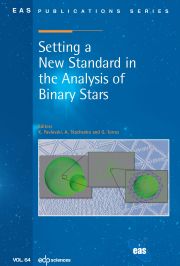No CrossRef data available.
Article contents
The Science Case for a 2 m-class Telescope at Dome C, Antarctica
Published online by Cambridge University Press: 23 May 2007
Abstract
Dome C, being one of the summits of the Antarctic plateau, is an exceptional site for astronomy. Its advantages over a temperate-latitude site for a wide range of observations are considerable, as well as becoming increasingly appreciated by the scientific community. We discuss what these advantages are, and some of the science possibilities they offer. They fall under four principal regimes: (i) diffraction-limited observations (i.e. λ > 3 µm), (ii) wide-field thermal infrared observations (i.e. λ > 2.2 µm), (iii) when observations are seeing-limited (i.e. from 0.4–3 μm) and (iv) new windows (i.e. in the mid–IR and sub–mm). Each regime offers particular advantages over corresponding observations made from a temperate site. When more than one of these advantages applies the gains can be potent. The science possibilities are many, ranging from solar system science, such as monitoring the global climate of Mars and Venus, to the study of the distant universe, such as ultra-deep fields to probe the assembly process of galaxies and the search for the “first light” through thermal–IR emission from gamma ray bursters. In this paper we discuss a range of science opportunities offered by each of these regimes, making use of a 2 m-class telescope. Such a facility would serve as an essential next step in the development of Antarctic astronomy, and the far-reaching possibilities offered by larger telescopes and interferometers on the Antarctic plateau.
- Type
- Research Article
- Information
- Copyright
- © EAS, EDP Sciences, 2007




